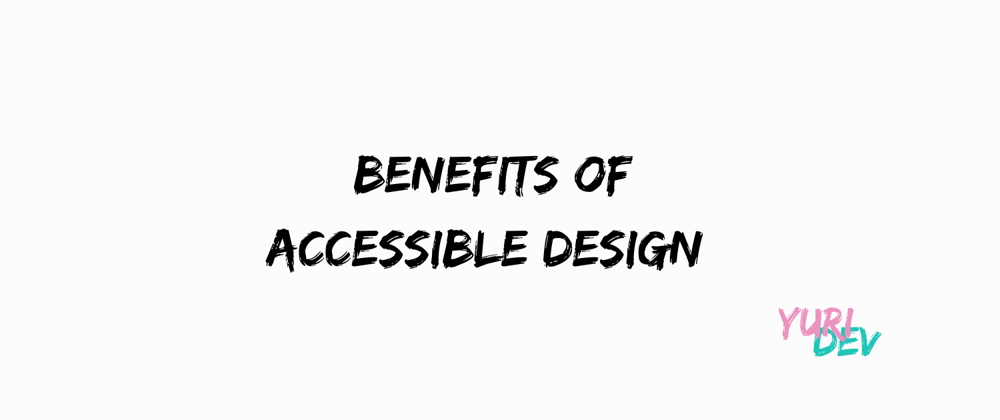In my last article on Myths and Misconceptions about Accessibility, I talked about how people believe that only a few people would benefit from accessibility.
The fact is that accessibility benefits a wide range of people, society and the economy. Let's go into detail by exploring good reasons for accessible design.
Benefits for people with disabilities
Accessible design doesn't just make life easier for people with disabilities, in many cases it makes things possible.
Accessibility is not just a "nice to have" as some would say, it is necessary. With accessible design, for example in transportation or architecture, people with disabilities can go to work, visit friends and family, go to entertainment venues and restaurants, use buildings and public spaces, and more.
Benefits for companies and organizations
Accessibility improves public perception through an accessible website or web application because it shows that you and your company are committed to equality and fairness. This can also serve as leverage against your competitors who are not committed to these values.
Your website will automatically be compatible with a wide range of devices, because accessible design requires you to qualitatively test the robustness of your website on many platforms, browsers, and devices with a variety of input methods.
It also improves the ability of search engines to find and index your work with the appropriate keywords. Many of the techniques required for accessibility involve the intelligent use of semantic markup in text and HTML. This makes it easier for users and, more importantly, potential customers to find your website.
A very important point that many people don't think about is that people with disabilities can spend money too, which means that accessibility will increase your customer base.
If they can access your website (and if they like what you offer of course), they are likely to buy it. But if they can't access your website, it doesn't matter much if they like what you offer because they can't go through the buying process. So accessibility benefits your bottom line.
In many regions of the world, creating inaccessible websites is even against the law. The public sector is often required to make their websites 100% accessible according to WCAG2.1 AA. These organizations face a hefty penalty if they fail to comply.
In addition, people with disabilities have rights and could sue your company if the website is not accessible. This means bad press and huge costs that are completely avoidable if you create an accessible website from the very beginning.
Benefits for everyone
Last but not least, accessible designs simply improve access for everyone, including people without disabilities.
👍🏽 Isn't it convenient that curbs make access easier for our strollers, bikes, carts, and anything else with wheels?
👍🏽 Isn't it convenient that everyone can use an elevator because maybe you're too lazy to walk up 3 floors to your apartment because you bought too much at the store and it's too heavy to carry it all up now?
👍🏽 Isn't it convenient that you don't have to open the door with the knob when you have your hands full to enter the building because the door opens by itself?
In inaccessible environments, it often takes two people to do things that usually only require one person, which can be inconvenient for both the person with the disability and family members and helpers.
People without arms need someone to open the door for them, and people with limited or no vision need someone to read printed materials to access information.
If the world were more barrier-free, there would certainly be more social contact between people with and without disabilities, which could lead to more friendships between them. This would enrich everyone's life, because we all need friendships 💜.
Having a friendship with a person with a disability can also help dispel many of the fears and discomfort that people in the general population often feel about disabilities in general.
Thanks for your reading and time. I really appreciate it!









Top comments (0)